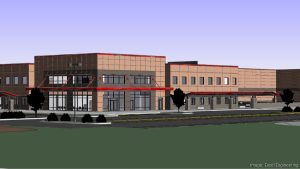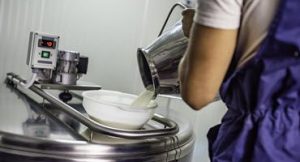
Our Rachel Mann spoke with two different direct-to-consumer dairy farms. Both are relatively new to the business, but are heading in very different directions.
Neil Dunlop and his wife moved to Marshfield during the pandemic, taking over operations at Hollister Hill Farm. After less than two years into the business, they’ll be ending dairy production.
“It feels sad to us and it wasn’t an easy decision for us to make, to stop doing it of course,” Dunlop said. “It feels like the end of something.”
Hollister Hill farm only has three dairy cows. Dunlop says there’s no way to compete with larger facilities.
He says they sell half-gallons of raw milk for$5 per half-gallon in their farm store, but estimates it takes about $12 to produce.
“It has been being sold here for years and we thought it was kind of a community service,” Dunlop explained. “In 2021, the first year we were able to keep records we we lost the thousands of dollars,”
Sunday Bell Farm in Danville is a first-generation farm, also relatively new to the dairy business. It’s not their most profitable area of business, but they are looking to expand dairy production in the coming months.
“This will be our second season of production, so we’re still dealing with you know the general challenges of access to land and access to market stuff like that,” said Kylie Cook, one of the farm’s owners.
She says their biggest concern is supply chain issues.
“Fuel and grain, those are the two biggest ones I worry about,” she said. “Those those two have different implications.”
While small dairy may not be the most profitable, Dunlop and Cook say it’s a way of life.
“We will be keeping the cows on the farm,” Dunlop explained. “We plan to milk them when they freshen or have calves.”
“I wasn’t born into dairy, but I always knew I wanted to farm,” Cook explained. “It just felt right in my heart.”
Hollister Hill farm will stop selling raw milk on March 31st. However, all of their other products will still be available.
























